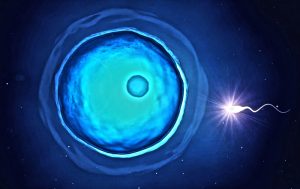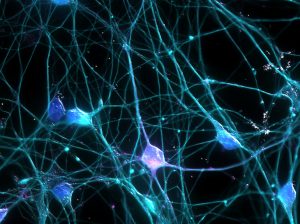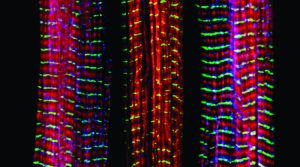Enter your address to receive notifications about new posts to your email.
Articles tagged Human Disease
(81 results)
-
Clues to the innate drug resistance of a cocoa-fermenting pathogen
At first glance, the yeast Candida krusei seems as innocuous as microbes come: it’s used for fermenting cocoa beans and gives chocolate its pleasant aroma. But it’s increasingly being found as a pathogen in immunocompromised patients—and C. krusei infections aren’t always easy to cure. This yeast is naturally resistant to fluconazole, a first-line antifungal that’s…
-
Missing kidney mutation found
It’s surprisingly common for babies to be born missing one or both kidneys; an estimated one in one thousand babies are born with a single kidney. Called renal agenesis, this condition is fatal if both kidneys are missing, and having just one can also lead to serious health problems like hypertension and early renal failure.…
-
How model organism researchers can help solve rare disease puzzles
For many of the roughly 300 million people around the world with rare diseases, the road to diagnosis can be long, painful, expensive, and disheartening. Around eighty percent of very infrequently seen undiagnosed diseases are estimated to have a genetic basis, but even with modern DNA sequencing techniques, the causes are often unclear. In these…
-
Cause of neurological disorder in Belgian Shepherds discovered
Malinois dogs are working animals known for being used by the Secret Service to guard the White House. These dogs, a subtype of the Belgian Shepherd breed, are robust, with an average life expectancy of 10-12 years. But some puppies are afflicted by a genetic condition called spongy degeneration with cerebellar ataxia (SDCA). A puppy…
-
Chemical preserves mouse fertility after radiation
After surviving breast cancer, almost forty percent of female patients are affected by primary ovarian insufficiency (POI). This condition, in which ovaries don’t produce normal amounts of hormones or release eggs regularly, can result in health problems and an inability to have children. But POI isn’t caused by cancer itself—the actual culprit is DNA damage…
-
How the genetics of seizure susceptibility changes over time
Epilepsy is characterized by recurrent seizures, often with no immediately obvious cause. In the August issue of G3, Ferland et al. use a genome-wide association study in mice to show that after multiple seizures, the genetic basis of seizure variation shifts from previously identified genomic regions to new ones. This research shows that the genetic…
-
Alcohol withdrawal is influenced by Slo channels
For people with alcohol dependence, withdrawal symptoms can cause relapse. Some physical symptoms—such as seizures, delirium tremens, and heart rhythm abnormalities—can be fatal, but even non-life-threatening symptoms like anxiety and confusion can trigger relapse. The changes in the nervous system that underlie withdrawal symptoms may involve ion channels in the Slo family. The function of…
-
Dysfunctional calcium release contributes to muscle weakness as we age
Strong muscles aren’t important only for athletes—declining skeletal muscle strength is strongly associated with lower quality of life and even mortality in older adults. As the world’s population ages, understanding why muscle strength decreases over our lifespans is critical to ensuring seniors enjoy a happy, healthy old age. Normally, a muscle contracts when calcium is…
-
Cause of fatal naked foal syndrome revealed
When a horse is born with naked foal syndrome (NFS), it will likely die early. This genetic skin condition affects the Akhal-Teke horse breed from Turkmenistan, which is known for its speed, endurance, and intelligence. Worryingly, the incidence of NFS seems to be increasing. Although breeders have been aware of NFS for over 75 years,…
-
Behind the cover: Oh Canada!
February marks the launch of a crisp new look and improved navigation at the G3 website. Go check it out; we’re very proud of the design! We are also unveiling a new cover layout that allows the art submitted by our authors to shine. This month’s cover celebrates the first published genome assembly of the Canadian…
-
Pathogenic yeast uniquely resists toxicity of aggregation-prone proteins
Misfolded proteins can be so toxic that they cause cell death. At least nine neurodegenerative disorders are caused by misfolded proteins with expanded stretches of glutamine residues (polyQ tracts), including the invariably fatal Huntington’s disease. But some organisms are resistant to the harmful effects of these proteins. In the January issue of G3, Leach et…


![Cocoa farmer David Kebu Jnr holding the finished product, dried cocoa beans ready for export. Image by Irene Scott/AusAID [CC BY 2.0], via Wikimedia Commons.](https://s43361.pcdn.co/wp-content/uploads/2017/09/Webp.net-resizeimage-12-300x201.jpg)
![Photo by Hey Paul Studios via Flickr. [CC BY 2.0]](https://s43361.pcdn.co/wp-content/uploads/2017/09/kidney_770x-1-300x233.jpg)








